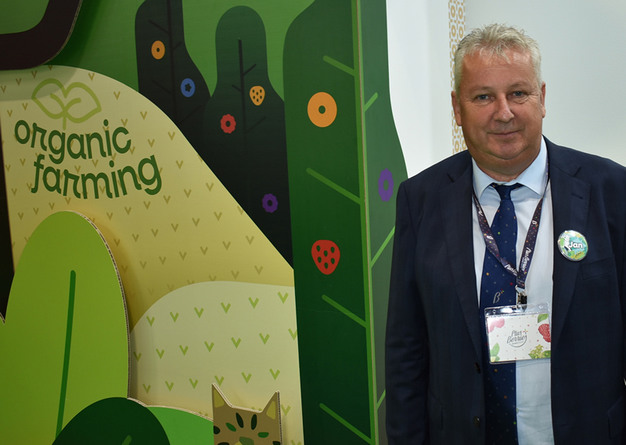"In Spain, we usually begin harvesting raspberries in mid-September. It's already a month later now," says Jan van Bergeijk. The Dutchman is responsible for raspberry sales at the Plusberries group in Huelva, Spain. He hopes it will rain soon. "It's getting really urgent; we want to start planting strawberries, but the water shortage is genuinely making itself felt," he says.
"The late summer weather continues. Lower temperatures and higher humidity would benefit the crop. Huelva's water usage is being cut by 50% from this year. That's undoubtedly going to cause lower production. I expect many growers will dig up some of their plants around March, when strawberries are cheapest, if they need a lot of water then."

Jan van Bergeijk at Fruit Attraction
"I see the same happening for raspberries. Those are normally cut back in January, but I think growers will leave that out this year because otherwise, they won't have enough water available in April and May to maintain everything. With blueberries, you don't have that option; you have to leave those," Jan continues.
"It's generally going to be an anxious winter for Southern Europe. Portugal has the same problems. If it doesn't rain, the soft fruit market will be tight. It has also been scorching hot in Morocco, and it's still 35-40°C. That complicates everything, so delays are obvious."
Jan has worked in Spanish cultivation for 30 years and considers the current situation extreme. "Other years were dry, too, but you often have somewhat lower temperatures and occasional rain showers," Jan explains. "That doesn't solve the whole water problem, but it does give higher humidity and fresher plants."
"That less fruit will come from Huelva is a given. There's already a shortage in the global blueberry market, and here in Spain, many plots have dead bushes that struggled to survive the summer. So, it's not going to be a great season, kilo-wise. The lack of water is by far the biggest challenge. If it rains all of November, discussions will turn to labor shortages, but by then, the biggest harm to yields will have been done," Jan concludes.
For more information:
Jan van Bergeijk
Frutas Remolino
Tel.: +34 609 016 654
Email: [email protected]
www.plusberries.com
